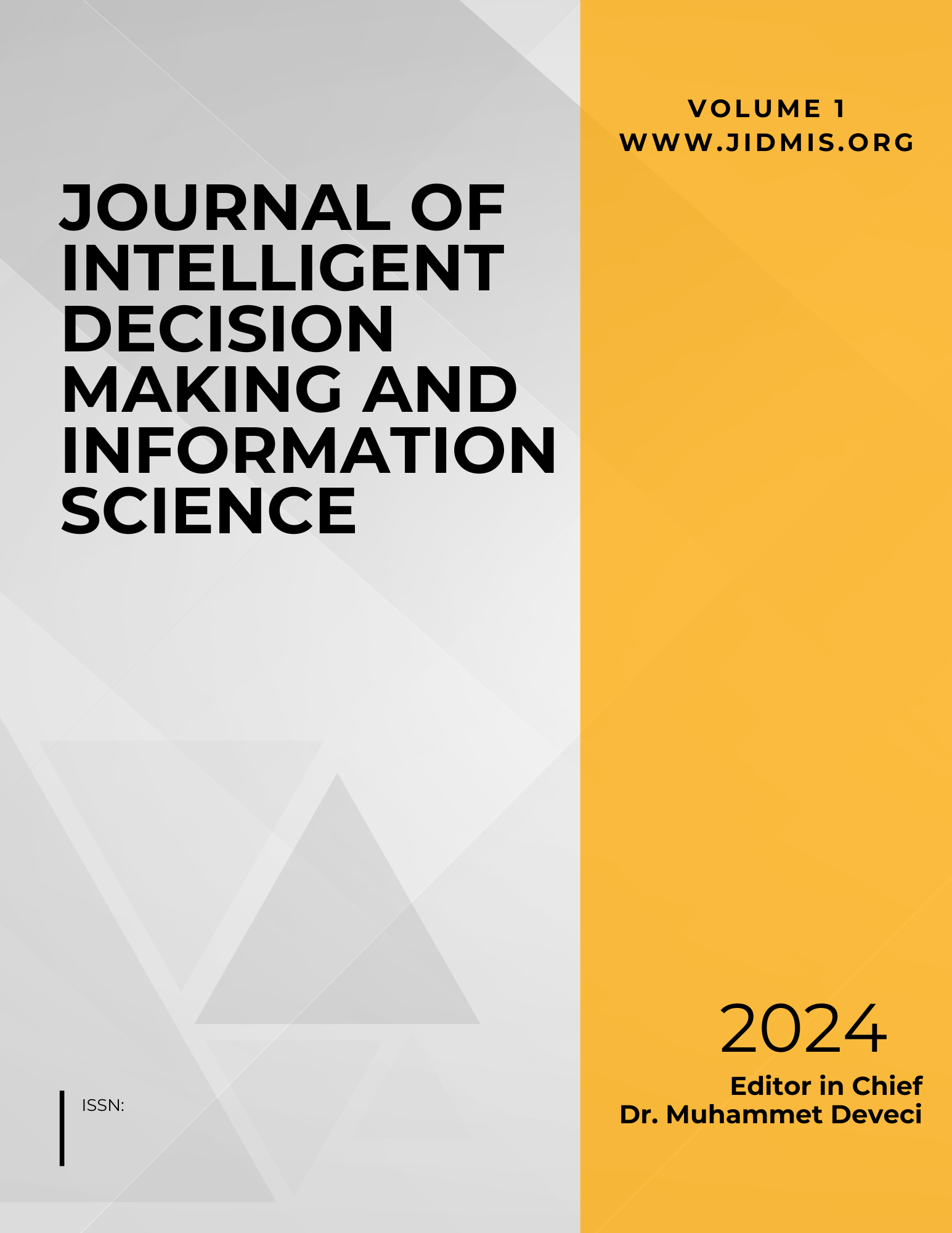Sustainable Energy Solutions: Evaluation of Solar Panel Installation Using Fuzzy Multi-Criteria Decision-Making Methods
DOI:
https://doi.org/10.59543/jidmis.v1i.11675Keywords:
Sustainable energy, solar panel installation, fuzzy multi-criteria decision-making, LMAW, ARTASIAbstract
This study evaluates solar panel installation decisions by applying a hybrid fuzzy multi-criteria decision-making (FMCDM) methodology, integrating the Fuzzy Logarithm Methodology of Additive Weights (F-LMAW) for criterion weighting and the Fuzzy Alternative Ranking Technique based on Adaptive Standardized Intervals (F-ARTASI) for ranking alternatives. The primary aim is to identify and prioritize critical criteria influencing solar panel installation and optimize the decision-making process to propose sustainable and strategic solutions. Eighteen comprehensive criteria-ranging from installation costs and energy efficiency to environmental impact and public acceptance-were analyzed across five potential locations in Turkey: Gürün, Kangal, Divriği, Altınyayla, and Imranlı.
The findings highlight that the ranking of alternatives remains consistent under varying F-Bonferroni mean aggregation operator parameters ( and ), demonstrating the robustness and reliability of the adopted approach. Sensitivity analysis confirmed that the established criteria play a decisive role in the ranking, with Gürün consistently ranked first across all scenarios. Validation of the F-ARTASI results against established FMCDM methods, including F-TOPSIS, F-CoCoSo, F-MARCOS, F-WASPAS, and F-RAWEC, showed high consistency, with Spearman Correlation Coefficients (SCC) averaging 0.90. This reinforces the methodological reliability of the proposed model and underscores its applicability in real-world energy management scenarios.
The study provides valuable insights for decision-makers in optimizing solar energy projects, emphasizing the importance of systematic and analytical frameworks. Moreover, the consistent alignment of rankings across multiple methods suggests a flexible and reliable decision-making approach that is adaptable to different contexts. While the findings offer robust guidance for solar panel installations, the study acknowledges limitations in data generalizability and calls for further exploration into evolving criteria, such as emerging technologies and climate-specific conditions. Future research should focus on integrating advanced FMCDM techniques and expanding the framework to broader sustainable energy initiatives.
Downloads
Published
How to Cite
Issue
Section
License
Copyright (c) 2024 Gülay Demir

This work is licensed under a Creative Commons Attribution 4.0 International License.
JIDMIS is published Open Access under a Creative Commons CC-BY 4.0 license. Authors retain full copyright, with the first publication right granted to the journal.











